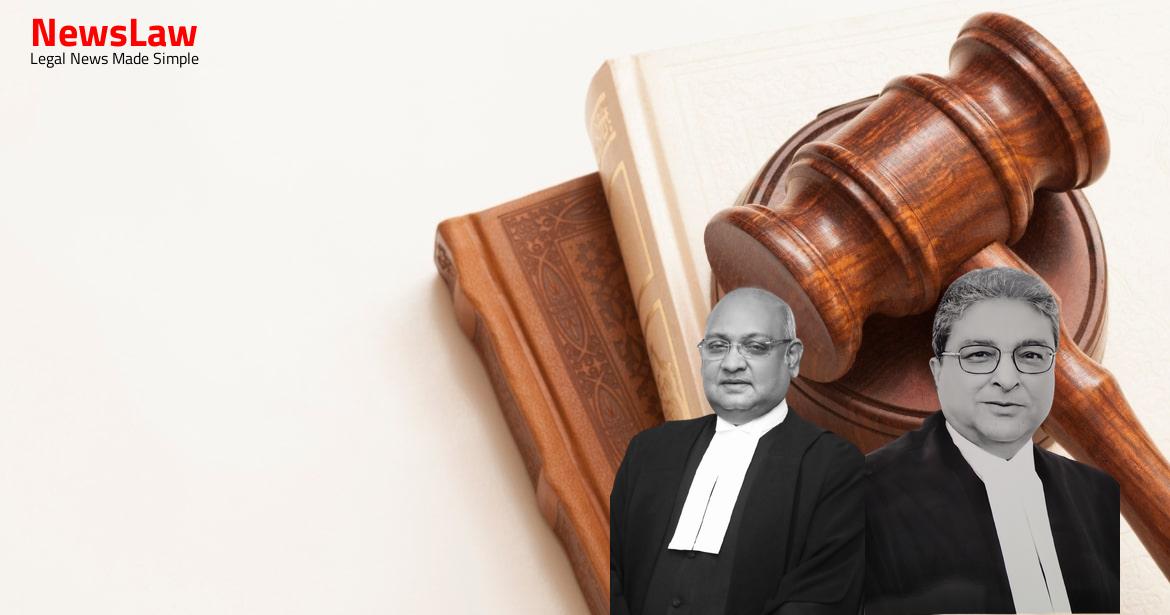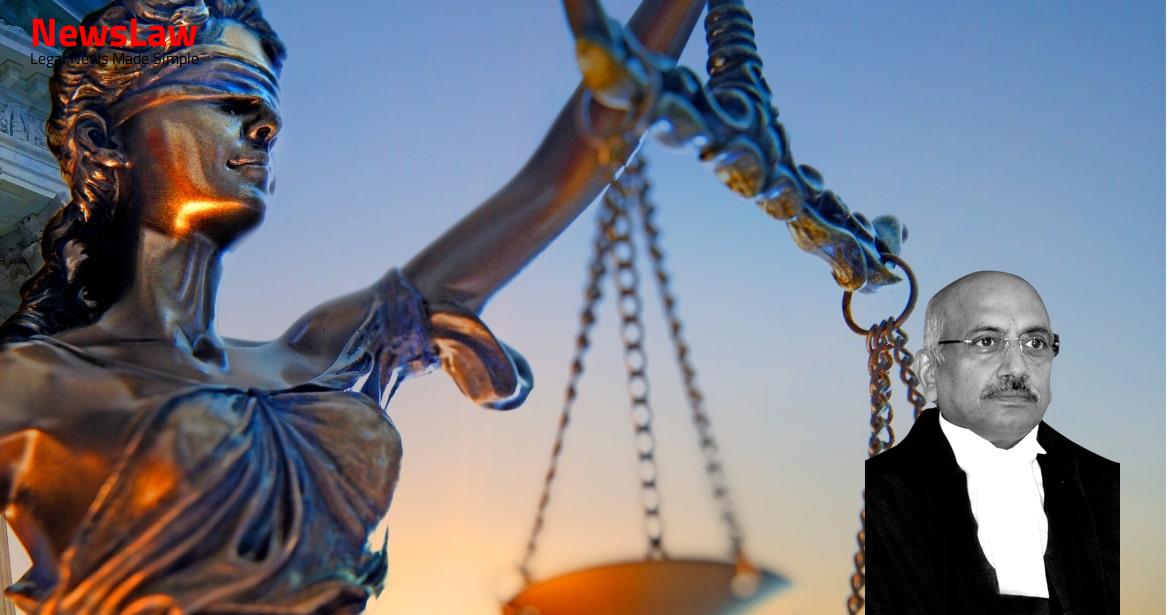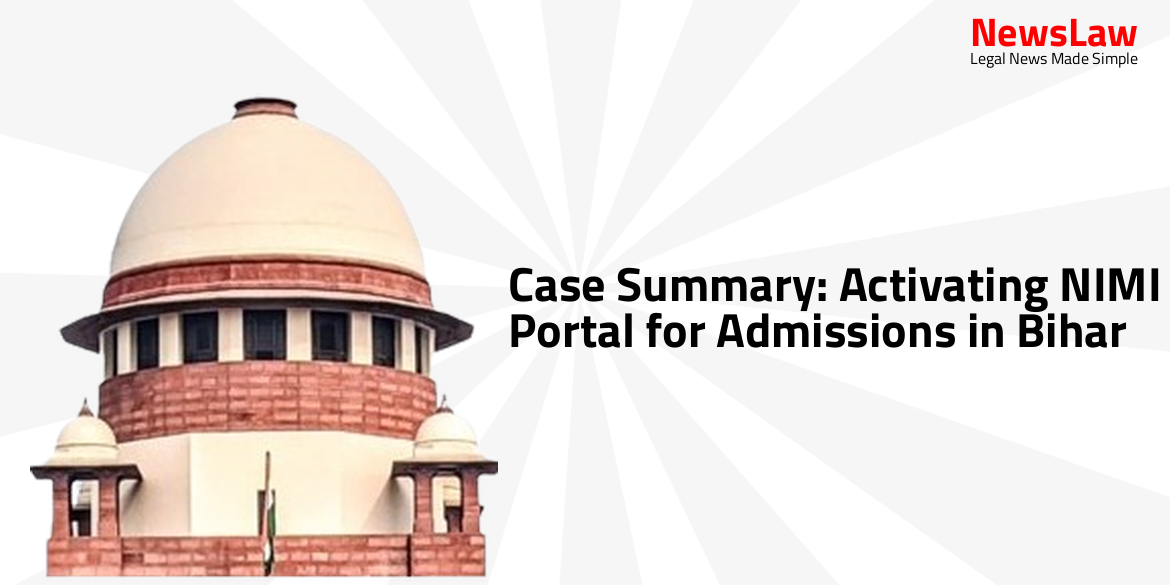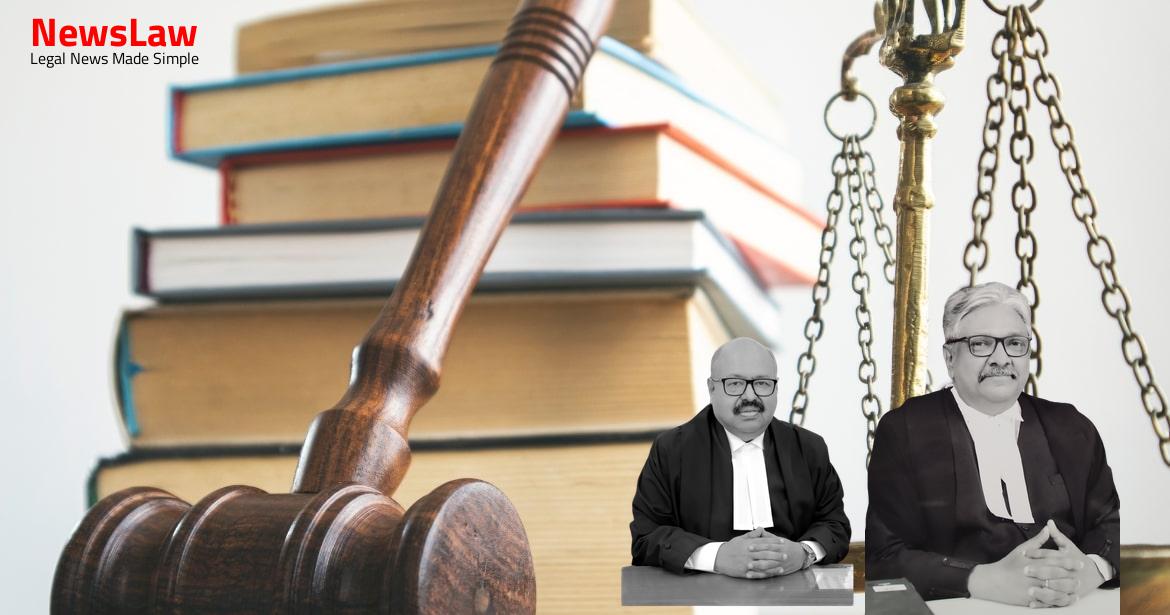Delve into a recent court judgment that scrutinizes a loan transaction dispute, focusing on the nuances of contract law and evidentiary requirements. The court’s meticulous legal analysis sheds light on the complexities involved in determining the nature of the transaction and the parties’ obligations. Follow along to gain insights into how courts interpret and decide such contentious issues with precision and clarity.
Facts
- Defendant contended that he did not sell the property to the plaintiff but took a loan of Rs. 27,500 for which a nominal sale deed was executed.
- Defendant claims to have repaid Rs. 19,750 in cash and cheque to the plaintiff, and also given his refrigerator worth Rs. 7,500.
- Legal representatives of defendant appealed against the judgment and order of the High Court of Judicature at Bombay.
- Predecessor of present respondents filed suit for possession and damages against predecessor of present appellants, claiming purchase of property under a registered sale deed.
- Trial Court found plaintiff had failed to establish being put in possession and that defendant paid municipal taxes, electricity bills etc., indicating the sale deed was for security.
- The Trial Court found that no payment of consideration was made at the time of registration of the sale deed.
- The Trial Court dismissed the suit as the defendant failed to establish the transaction as a loan.
- The First Appellate Court disagreed with the Trial Court’s findings on material issues.
- The property was encumbered against a loan taken by the defendant, making its sale questionable.
- The First Appellate Court did not believe the defendant’s story of repayment via cheques.
- The First Appellate Court observed that the defendant may have tricked by including the plaintiff’s name on the cheques.
- The sale deed was executed and registered before the Sub-Registrar.
- The possession of the defendant or his agents was deemed irrelevant as the plaintiff had legal possession and a valid title.
- The Single Judge dismissed the second appeal based on the findings of the First Appellate Court.
Also Read: Clarifying Legal Requirements for Approval in Disciplinary Proceedings
Arguments
- High Court admitted second appeal based on substantial questions of law
- Questions raised regarding erroneous formulation of points for determination by the appellate court
- High Court observed that the First Appellate Court covered the issue of the nature of the transaction within the points formulated
- Appellants argue that the High Court decided the case summarily without proper consideration of the grounds presented
- Trial Court’s dismissal of the suit was based on relevant considerations and cogent findings
- First Appellate Court allegedly reversed the Trial Court’s decision without adequately addressing the reasoning and findings
- Substantial evidence indicating the transaction as a loan transaction was not duly considered by the High Court
- Respondents argue that the First Appellate Court thoroughly examined the matter and its findings did not warrant interference
- High Court’s dismissal of the second appeal, even if admitted on a few questions, was justified as they pertained to matters of fact
Also Read: Challenging the Validity of a Will: Legal Analysis
Analysis
- High Court failed to properly examine the substantial questions of law raised in the second appeal
- The appeal should not have been disposed of summarily after admission and formulation of substantial questions of law
- The defendant presented evidence through an employee of the bank to establish a loan transaction, which included a cheque dated 07.12.1992
- The defendant also claimed to have made payment towards interest to the plaintiff as per the written statement
- Once a second appeal is admitted with substantial questions of law formulated, it must be heard in accordance with Order XLII CPC
- The High Court’s judgment appeared to be a summary disposal of the second appeal, which is not in line with the procedural requirements
- The questions formulated by the High Court should have been properly considered rather than just endorsing the findings of the First Appellate Court
- The case involves complex issues that warrant a detailed reconsideration by the High Court in accordance with the law
- The High Court was required to examine the matter in necessary details
- Determine the substantial questions of law formulated in the case
- The respondent is entitled to argue against formulated questions during the hearing
- No indication in the High Court’s judgment if respondent argued against formulated questions
- High Court did not conclude that the formulated questions were not involved in the case
Also Read: Significance of Possession in Property Law
Decision
- The civil suit was filed in 1995, urging the High Court to assign a reasonable priority to the matter.
- The appeal is allowed, the judgment dated 08.03.2016 is set aside, and Second Appeal No. 275 of 2001 is restored for reconsideration by the High Court on substantial questions of law.
- The impugned judgment dated 08.03.2016 is remanded for reconsideration by the High Court on the questions of law already formulated by it.
Case Title: RAMDAS WAYDHAN GADLINGE (SINCE DECEASED) THR LRS. VATSALABAI RAMDAS GADLINGE . Vs. GYANCHAND NANURAM KRIPLANI (DEAD) THR LRS. DHRUPADABAI . (2021 INSC 363)
Case Number: C.A. No.-004479-004479 / 2021



